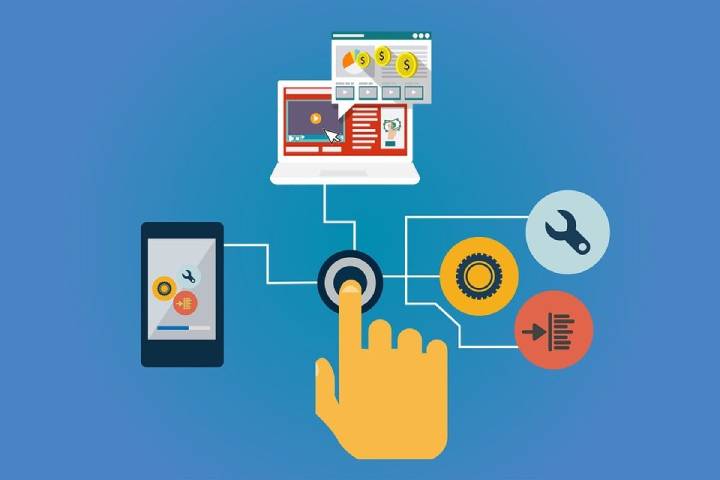Daily life has never seen a more unprecedented and dramatic metamorphosis in any other year as it has in 2020. The COVID-19 pandemic took over the world by storm, and persisting socio-economic structures altered overnight. Social distancing is a trending practice. People have resorted to relying on digital transactions, online purchases, and video interactions to satisfy their personal and business needs.
Table of Contents
1. Changing the terms of businesses
The paradigm shift in business models is evident across all domains, including mortgage, real estate, shopping, etc. The new approach using digital technologies has been facilitated using Remote Online Notarization (RON) and eSignature.
The traditional mortgage and money lending proceedings involve notarizing an instrument and physically appearing before the notary public to execute it. Rubber stamps and paper were the staple needs for notarization, and the entire process involved delays, inconvenience, and expenses.
However, states have legalized the use of remote notarization, where digital signatures on documents and records can be approved. The pandemic propagated the adoption of virtual technology where notarizing over the internet is a reality.
2. For better understanding
Moneylenders and mortgage lenders have found relief in Remote Online Notarization (RON) with the onset of commercial stagnancy. RON forms only a part of the entire digital mortgage ecosystem. The proposition for a unified electronic transaction dates back to the late 1990s.
Congress legislated the Electronic Signatures in Global and National Commerce Act in 2000, implementing federal laws to digital agreements between two parties. As of 2020, 23 states in the US allow notaries to conduct remote authorizations using RON.
3. Deployment
States regulate RON deployment with laws and define the jurisdictions where it is an authorized form of a notary. Since large scale transactions are still limited, facilitators offer many RON services instead of a single comprehensive one.
It increases optionality, and moneylenders can settle transactions seamlessly. Documents notarized electronically are legally binding and permissible in legal courts.
Foolproof, thanks to the internet
The premise of RON is based on parties being unavailable in the same physical location as the notary. Hence, verification becomes a problem. For RON, notaries use videoconferencing where they verify the document virtually.
It establishes the deed of trust with the parties as the proceedings are recorded. Ultimately, technology makes RON more secure than paper-based verification and improves integrity. Documents and transaction details are usually encrypted. It eliminates fraud or forgery.
4. How RON works?
- The procedure of RON is closely related to the traditional method, except there is an online equivalent step for every step.
- The notary initiates the transaction and sets up an appointment over a video conference with the concerned party. They upload the documents and forms that need their signature.
- Signers photograph their government ID for verification along with any personal details necessary, like the last four digits of their SSN. Sometimes, the notary attaches a questionnaire for knowledge-based authentication.
- The notary verifies the documents, credentials, and completes the signer’s verification using the knowledge-based authentication.
- Video conference provides a two-way audio-visual medium where the notary and the signer appear before each other, except virtually. It is especially beneficial given a global health crisis.
- The signer completes signing the documents in front of the notary. Now the notary can attest the papers electronically, using e-signatures, electronic notary seal, and a digital certificate.
- All participants involved in the transaction receive an email consisting of the notarized documents.
- Notaries maintain an electronic journal or ledger, storing all the exchanges between the parties and the copies of the notarized documents, information of the signer, etc.
5. How is RON shaping business for the future?
Physical verification, pen-and-paper transactions, and notarization require travelling, time, and energy. Each notary requires anything between $150 and $250 for travelling only. Moreover, paper notarization requires scanning, photocopying, faxing, storage space, backup, and capital investment.
On the contrary, RON requires a stable internet connection and a computer. The entire complexities in notarizing a single document conclude in only a few minutes. It improves the efficiency of notaries and security. Businesses and companies make savings on an array of services.
People can change their focus to developing their profits without travelling expenses or wasting time on single transactions. RON opens the scope for multiples transactions in a much shorter duration.
6. Limitless possibilities
Pandemic does not mean the end of revenue. It opens up new avenues to explore. The shift towards RON could be slow, but it is underway and here to stay. Suppose you were planning to close a deal on a property or complete sanctioning a loan.
In that case, RON enables the possibilities without compromising your health and safety. Hence, it is time we unlocked the untapped potential of Remote Online Notarization.
Tech Trends
Related posts
Leave a Reply Cancel reply
Hot Topics
Categories
- Ads (5)
- Animes (25)
- Artificial Intelligence (AI) (35)
- Augmented Reality (AR) (10)
- Automotive (9)
- Bitcoin (16)
- Blockchain (24)
- Business (244)
- Business Intelligence (3)
- Cloud Computing (23)
- Computer (128)
- Concrete Technology (1)
- Cryptocurrency (10)
- Cybersecurity (42)
- Data Science (9)
- Database (4)
- DevOps (6)
- Digital Marketing (76)
- Digital Workplace (14)
- Ecommerce (1)
- Education (28)
- Electric Vehicle (EV) (1)
- Electronics & Hardware (17)
- Entertainment (42)
- Fabrication (3)
- FAQ's (1)
- Finance & Marketing (47)
- Gadgets (35)
- Games (8)
- Gear (29)
- HTTPS (1)
- Industry (46)
- Information Technology (90)
- Internet (413)
- Internet of Things (IoT) (41)
- Job (25)
- Machine Learning (6)
- Marketing (92)
- Mobile Apps (21)
- Movies (11)
- Natural Language Processing (6)
- News & Trends (109)
- Programming (4)
- Science & Technology (235)
- Security (81)
- SEO (56)
- Services (36)
- Social Media (73)
- Software (99)
- Sports (1)
- Technology (306)
- Telecom (6)
- TikTok (5)
- Tours & Travels (9)
- Uncategorized (11)
- Virtual Reality (VR) (7)
- VoIP (4)
- Web Technology (42)
- Workforce (17)
- Workspace (6)



Stay connected